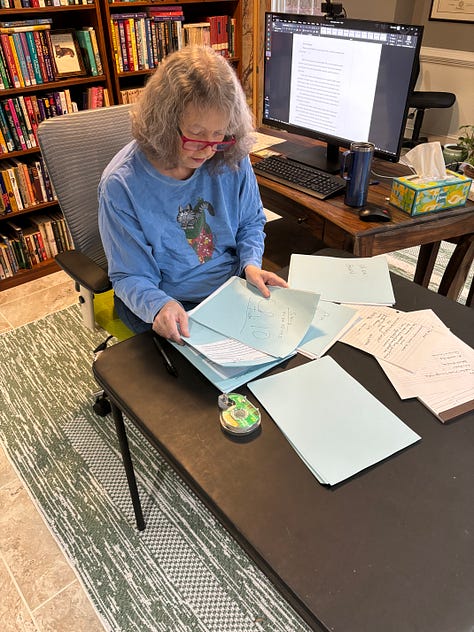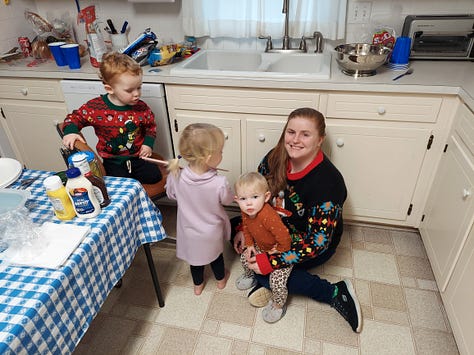


In “Would You Buy a $300 Pair of Socks?”, we looked at households as consumers. [1] But households also work and save.
Households work and save
Every day you have to decide how to use your time. Gary Becker, a Nobel Prize winner in economic sciences, thought of households as producers of labor, housework, and childcare.
So, how do you spend your time? You have to maintain yourself, so you have to sleep, eat, and exercise.
Do you have children? Do you stay at home to look after them or hire someone? Income often plays a role in that decision.
According to Becker, you also have two other choices to make about using your time. You decide how to allocate your time between household production, working, and leisure.
These decisions depend on your how much you can make in the labor market and your wealth. Wealth is what you already have set aside in savings from prior work or inheritance.
The decision to work may demand commuting time, so let’s count that as work time. Commute time can be a barrier to entry to working. I’ll look at that problem near the end of this post.
I spent two times out of the labor force to stay at home with my kids. I stayed at home when they were babies, giving up school for a time. Then I returned to school (to get my doctorate) and paid for help. I got some income as a research and teaching assistant.
I stayed at home again during the prosperous period of the late 1990s. My kids needed a soccer mom.
When the bills had stacked up, I returned to the labor force the second time.
To buy things, you must have an income. For most of us, that means working. To provide for longer term wants and needs, you must save. That means putting off buying stuff today.
If you’re lucky enough, during the day you have time left (after maintenance and work) for leisure. Activities like playing tennis, watching TV or reading a book, or meeting friends for a meal.
You may also have a job that includes paid time off (PTO) for vacation.
Work, then play?
But most Americans spend a lot of time working. Too much. According to Rebecca Zucker, half of Americans let paid time off lapse. In 2018, Americans gave up 768 million days.
If we’re involved in a new start-up business, a medical residency, or starting in law and finance it gets worse.
My husband Mark worked for six different start-up businesses after he left his first job at the Georgia Tech Research Institute (GTRI). Some of them we can’t prove existed!
He often worked 60- to70- hour weeks at the beginning. We rarely took vacations in those early days.
Even as an academic, I didn’t work a normal schedule.
Clayton State University had its roots providing additional education to workers on the southern crescent of Atlanta. My colleagues and I had to teach at night and during the day.
We worked long hours when we came to campus. But we only commuted two or three days a week.
Then we worked at home on other days. I found that Sundays were a great day to grade. I was rested and in a good mood by then. I could also shut the family out.
I took vacations when teachers took vacations—during spring break, at set times during the summer since I taught summer school, and over the winter holidays.
I had a weird problem during my first four years at Clayton State. Before both boys went to college spring break for the university was different from spring break from my boys’ high school, which was also different from spring break for my students’ children’s schools.
Still, we needed to take vacations, and we did.
Barriers to working
Not every worker has that option. Part-time workers and those on hourly salaries that don’t have paid time off (PTO), often don’t choose to take those breaks. [2]
“If I don’t work, I don’t get paid,” I heard.
Commuting is another barrier to working when you don’t work full time.
In my dissertation I found that any worker who doesn’t get enough hours to offset their commute is unlikely to work. Or they’re constrained to working nearby, which might not be the best option for a good job.
It’s still true.
Not surprisingly, in cities like Atlanta and Los Angeles, the biggest barrier to a “good job” was not having a car.
Next time we’ll look at the role households play when they save. Savings are an important part of the funds available for Investment, the next component of GDP.
As always, thank you for reading,
Nikki
[1] https://nikkifinlay.substack.com/p/would-you-buy-a-pair-of-300-socks
[2] The Fair Labor Standards Act doesn’t require pay for vacation or sick time. https://www.dol.gov/general/topic/workhours/vacation_leave




Jessey It is no wonder why many people are having less children much latter in life -too costly. Birth rates are dropping across many countries as well.
I fear children will run into debts before they finish high school. At this rate, most households are barely surviving let alone save.